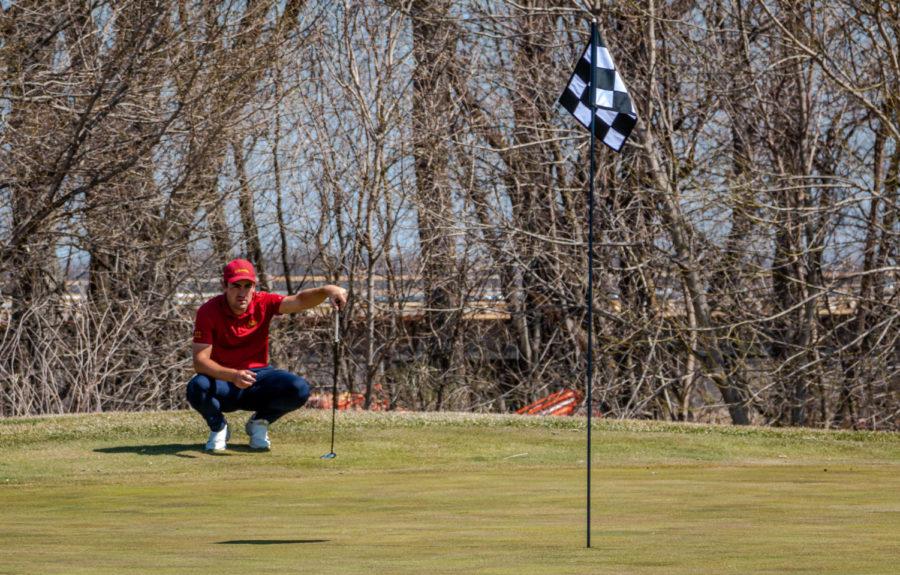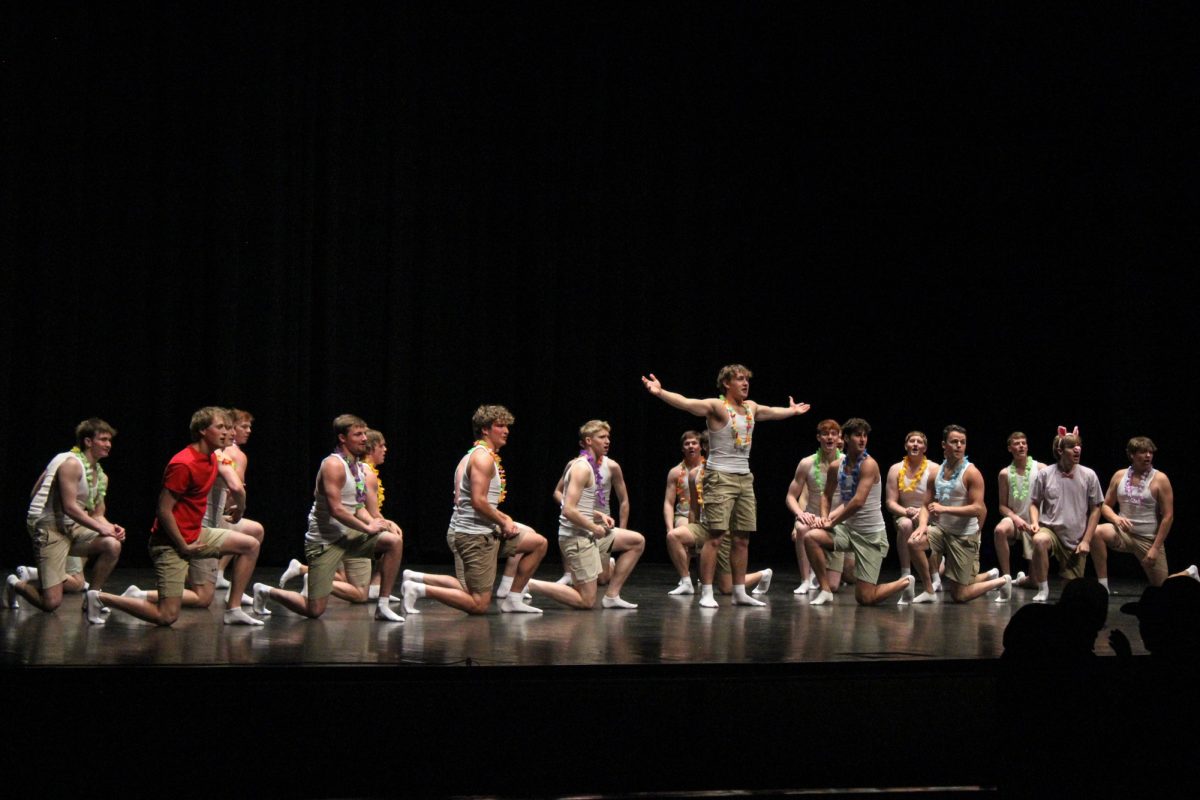Philosophical questions prompt research
June 29, 2010
The scent of incense flooded her nose as she gazed at the pictures of religious icons adorning the walls. This early experience inside a church had more of an impact on Nikki Bado-Fralick than she could have ever imagined.
“I developed a love of ritual from a very early childhood,” said Bado-Fralick, professor of religious studies at Iowa State.
Now, the author of two books is planning a six-month journey to Japan to film a documentary about Shingon Buddhism.
Bado-Fralick plans to leave in January for Japan and stay for six months in order to film a documentary on the Shikoku Pilgrimage, one of the most famous pilgrimages in Japan. For the Shikoku Pilgrimage, people travel to the 88 temples Kukai supposedly visited. Bado-Fralick will be a visiting research fellow at the Nanzan Institute for Religion and Culture in Nagoya, Japan.
“I will be able to look at [the institute’s] library, which is one of the largest library holdings in the world on Japanese religion and philosophy in English,” Bado-Fralick said. “I will also be doing work with my graduate student Eric Waite, who will walk and film the 800-mile Shikoku Pilgrimage.”
Bado-Fralick and Waite plan to interview and videotape pilgrims on the pilgrimage. Colleagues Dennis Chamberlin, professor of journalism and mass communications, and Nathaniel Wade, professor of psychology, will also be involved with the project.
“Chamberlin will help film the 88 temples on the pilgrimage and Wade does research on forgiveness,” Bado-Fralick said. “We’re going to see if we can get data on forgiveness during the Shikoku Pilgrimage.”
Bado-Fralick hopes the documentary will inform people in the United States about the importance of Kukai as a cultural icon similar in status to Leonardo DaVinci or Galileo. Her research at the Nanzan library will explore the philosophical teachings of Japanese philosophers like Kukai and Yuasa Yasuo in comparison with Western philosophers like Maurice Merleau-Ponty and Henri Bergson.
“We’re trying to create a new paradigm for the understanding of how the mind and body work together,” Bado-Fralick said.
Bado-Fralick believes having cross-cultural communication is essential in today’s society. She believes people should be educated about how people live in other cultures.
“For me, I think a kind of religious literacy is very important,” Bado-Fralick said. “We want students at Iowa State to be knowledgeable about the world, and one of the important things to be educated about are the world’s religions.”
Bado-Fralick was born in the Steubenville-Mingo Junction area in eastern Ohio. The community was heavily populated with Slavic people and had many orthodox churches. Bado-Fralick’s earliest memories happened inside these churches.
When Bado-Fralick was 7, she moved to Rayland, Ohio, a small town 25 miles from the Steubenville area. The summer after high school, Bado-Fralick attended Ohio University. Originally planning to major in biochemistry, Bado-Fralick quickly changed her mind after taking Philosophy 101.
After earning her bachelor’s degree in philosophy, Bado-Fralick attended graduate school, and had planned on getting her master’s degree in philosophy and going to law school. However, family issues caused Bado-Fralick to drop out.
“My mom died and critical things kind of exploded,” Bado-Fralick said. “Life has a tendency to interfere with our best-placed plans.”
Bado-Fralick then began working as an administrative assistant at Ohio State University. As she was working full-time, Bado-Fralick commuted to the university to earn her master’s degree in philosophy. Ohio State also has a policy where it lets its employees take one class a semester for free. Bado-Fralick took advantage of this policy and earned her interdisciplinary doctorate in philosophy, folklore and religious studies.
During the 10-year span when she was not in school, Bado-Fralick realized she was interested in religious studies and women’s studies, and began reading many books and essays on the topic. Before long, Bado-Fralick realized there was a future for her in studying women and religion.
“What’s interesting to me about religion are the things that people do; the way they live their lives, not so much text,” Bado-Fralick said. “For me, it’s much more about rituals and practices people do.”
Bado-Fralick’s studies focus mostly on how religious practices and rituals affect a person’s body, mind, and spirit. She has a special interest in how God/s affect a person’s life. Her first book, entitled “Coming to the Edge of the Circle: A Wiccan Initiation Ritual,” focuses on a specific initiation ritual done by a group of witches in northern Ohio. Bado-Fralick analyzed their rituals, and examined what is actually going on during the initiation process.
“Perhaps, by looking closely at particular forms of initiation, we can understand more about initiation in general,” Bado-Fralick said.
Bado-Fralick’s second book, written with Rebecca Sachs Norris, is entitled “Toying with God: The World of Religious Games and Dolls.” The book takes a look at the great variety of religious toys and games.
“There are all sorts of cool board games and dolls, just stuff you wouldn’t believe,” Bado-Fralick said. “[They’re] very much fun to look at and play with.”
Bado-Fralick has also written essays on religious rituals from different countries. Her research led her to the teachings of Japanese philosopher Kukai, the 8th century founder of Shingon Buddhism. Bado-Fralick continued studying Kukai’s philosophy cross-culturally.
“Maybe we can find out a little bit more about the body and the body’s role in ritual practices if we take a look cross-culturally at the kind of things Kukai was talking about,” Bado-Fralick said.
As far as the future goes, Bado-Fralick would like to implement a more multimedia delivery system in teaching her classes. Since rituals are so prominent in religion, a visual component of teaching is essential.
“When you’re looking at rituals, you are essentially looking at a living, breathing phenomenon; you’re looking at what people are doing,” Bado-Fralick said. “If you can’t look, and if there are no people doing anything, you’ve got your imagination, but sometimes it’s hard to imagine what you have never seen.”
Bado-Fralick believes philosophy, religious studies and women’s studies are very important to everyday life. For instance, Bado-Fralick realized how androcentrism — the practice, conscious or otherwise, of placing male human beings or the masculine point of view at the center of one’s view of the world and its culture and history — can affect people on a very personal level after three doctors in two states failed to analyze a heart problem because “women don’t get heart attacks.” Fortunately, she believes, people are better informed today.
“These subjects are really expansive; they’re far-reaching,” Bado-Fralick said. “They affect how you live, and they affect how life happens in some ways.”






